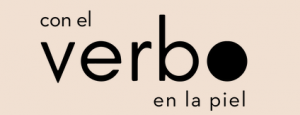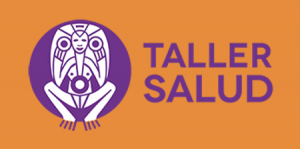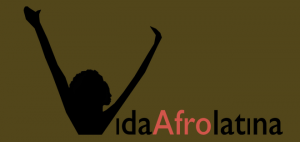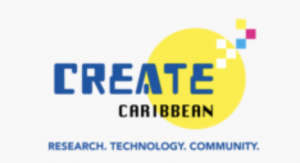Rethinking Black and Brown Space: Digital Humanities Exploration of Caribbean and African Diasporic Experience
Melanie N. Rodríguez Vázquez
Introduction
For this annotated bibliography, I chose an array of projects that focus on Community and Digital Humanities within a Caribbean and African diasporic context. These projects mainly center on Black and Brown experiences as a way to highlight the importance of Black Digital Humanities. Latin America and the Caribbean have a colonial history that has consisted in its exploitation, first by European countries and then by the United States. The consequences of these events, such as the expropriation of resources, sexual violence, and anti-Blackness (to mention a few), entail a substantial disadvantage that provokes poverty within these countries. In search of better conditions, Latinx families have migrated to the United States.
The following projects have various aspects in common: (1) the key conversation around Blackness within Latinidad. Black people have been denied Latinidad due to Latin American and Caribbean countries’ aspiring whiteness. Meaning that departments created—such as Latin American Studies, Puerto Rican Studies, or Chicano Studies—inherently exclude Black presence from their curriculum, which translated to what the Black Latina Know Collective state in their website: Black women scholars have been deemed as incapable of producing knowledge. (2) These projects are combatting anti-Blackness by rescuing Black ancestors’ stories and biographies by proposing them as mentors from whom current scholars and the general public can learn and cherish, and also recognize the significance of writing our stories for posterity.
All ten of the digital projects were created, co-founded, or curated by Black Latinx or African American women scholars. As featured in Africana Memoirs’ project, “Black women are human beings”. That is why I found it important to feature projects that centered Black women’s voices as a way to showcase the versatility of Black women in academic spaces, be it physical or digital. Additionally, the key of working with the intersectionality of race and gender inside digital spaces serves to counteract the narrative created that perpetuates Black people as technophobes. These ten projects clearly demonstrate that race is not inherent to technical literacy, but more so a direct result of the aforementioned white supremacy that has ensured the lack of inclusion of Black scholars in the digital by providing funds to white scholars.
Within these projects, I want to highlight the collaborations between these Black women and how this is a tool to support and promote one another. For example, Negras podcast has featured scholars such as Dr. Yomaira C. Figueroa, who is the co-creator of Electric Marronage. Figueroa is also a member of Black Latinas Know Collective. Another example is Colectivo Ilé’s partnership with VidaAfrolatina; both work on ensuring better conditions for women in Black communities—Colectivo Ilé based in Puerto Rico and VidaAfrolatina in the United States. Which brings me to another aspect that must be taken into consideration. Although I primarily wanted to feature Caribbean and Latin America, it is important to recognize the migrations to the United States, which explains why some of these projects, although founded and created by Black Latinx women, are still based in the United States where they have had access to resources as scholars. This, to me, makes it relatable to the reality of poor families who migrate from their countries, and the fact that these women work to bring back resources to their home countries makes these projects exceptional. A goal that I recognize throughout the list I chose is the constant mention of healing to imagine and create futurities for the Caribbean and the African diaspora. I share the following list of digital projects to present the current and ongoing conversation around Black Feminist Digital Humanities.

Proyecto Cortijo [Spanish] / Proyecto Cortijo [English]
De Coco y Anís is a digital project recently created by Black Puerto Rican scholar and afrofeminist Marissel Hernández Romero (she/her/they/them) and co-edited by journalist and ethnomusicologist César Colón Montijo (he/him). Together, they collaborate with ten (10) Afro-Puerto Ricans with the mission to recover Rafael Cortijo’s legacy to Puerto Rican music. These collaborators, such as queer writer Yolanda Arroyo Pizarro, visual artists Las Nietas de Nonó, and ethnologist Ivette Chiclana Miranda (to mention a few), are all part of the contemporary cultural and intellectual production in Puerto Rico and the US diaspora. Their project consists of a website that welcomes readers to their mission, and as you scroll down you’re met with the faces and biographies of the people involved. Also, they offer a pre-sale for an upcoming book that will be published by EDP University. The book answers the question “What does Cortijo mean to you, further than Maelo?”. The contributors answer the ways in which Cortijo’s legacy influenced Puerto Ricans in general, but, even deeper, the Black community. The question’s specificity to “further than Maelo” is due to their image being always presented as one, and although their impact together is unparalleled, the project’s focus is on Cortijo as a way to remind folks that there may not have been a Maelo without Cortijo. Additionally, the project shares two music playlists, “Composiciones de Cortijo” (found on Spotify) and “Acortijarse” (found on Amazon Music) curated by Hernández Romero to feature Rafael Cortijo’s songs. With this project, Hernández Romero and her team create dialogues around successful, yet forgotten, biographies such as Cortijo’s case. By centering their work on Cortijo, they are calling out scholars who have not found an importance in studying our Black heritage. De coco y anís questions Puerto Ricans’ comfortability around anti-Blackness, while creating a space for young Black children to learn about Black Puerto Rican history.

Negras
A group of Black/afro-descendants from Colectivo Ilé—a community organization that offers anti-racist workshops and trainings—and professors from the University of Puerto Rico, upload weekly episodes with topics related to Blackness in Puerto Rico. Their name specifies how their main guests on the podcast are Black women, as a way for their audience either on the radio, Spotify, or Apple Podcasts to listen to Black women. Negras has been active since 2020 with a total of 111 episodes. The topics discussed vary from anti-racist and gender perspective curriculum, to beauty standards, mental health, and colorism. The dynamic on their episode is to have one to two moderators accompanied by a guest or guests who are academic scholars and/or community leaders. They share brief biographies and normally answer the question of how they came to notice they were Black, or when was the first time they encountered racism in Puerto Rico or the guest’s country of origin. Certain episodes, such as “Repasando la puertorriqueñidad” reflects on our history as a colonized archipelago and how intersectionalities of race and gender play a role in how our experiences will vary. They also invite Black scholars from other countries in Latin America—for example, Costa Rica, Dominican Republic, and Colombia—to create a conversation where various women and femmes explain and share their experiences as Black women in countries that want to assimilate to whiteness rather than Blackness. These conversations prove how important dialogue is to pinpoint how anti-Blackness is present in Latin America. Other themes discussed in the podcast are fat-phobia and its connection to anti-Blackness. Additionally, toxic masculinities, which meant a couple of Black men were invited to discuss and reflect on Blackness and alternative masculinities.
Although these are themes that may be starting to happen in Puerto Rico, they are still happening in small, academic spaces. Having both a radio station and podcast makes it accessible for a more general public, who may have not been exposed to such topics, while also being an open resource that you can listen to when you have the time as entertainment or as a scholarly assignment.

Africana Memoirs: Database of Black Women’s Autobiography
“Black women are human beings,” states the website in their homepage. This project is an open access database that focuses on narrative research to center women of African descent. Curated by Dr. Stephanie Evans, professor and director of the Women’s, Gender, and Sexuality Studies at George State University. She educates through the hashtag #HistoricalWellness. Dr. Evans states that the project follows the Sesheta tradition, who was an ancient goddess known as a scribe and record keeper. Dr. Evans looks to inspire the next generation of writers to learn of the importance of Black women ancestor’s knowledge. She visualizes memoirs as mentors from whom readers learn and can feel empowered by to write their own life stories. The database includes the autobiographies of 500 African descent women. It is divided and categorized in alphabetical order for easier access and it also includes specific categories of interests: travel, food, meditation and yoga, and mental health. Within these categories, there is an array of recommended books accompanied by a link where you can buy them. The database also has a section to recommend further book references and a link for those interested in professional assistance to write their life stories. Dr. Evans’ project recognizes the value of Black women’s experiences around the globe. It validates that Black women must be read and listened to when society ignores or silences them. There is a lot to be learned from their experiences in an anti-Black world. With the database, one is able to trace both the simplicity and hardships that these 500 women lived; knowledge that is available to present and future Black girls and women. Dr. Evans proposes it as a bridge of humanity’s past with our future. If there are 500 women featured in the database, one must think of what other stories are out there waiting to be rescued and shared.

Revista Étnica
The first magazine and platform created to support and amplify Black communities in Puerto Rico. The creator—Glorian Sacha Antonetty Lebrón—is a writer, communication strategist, and a professor. She founded the magazine in 2018 to highlight Blackness and Black stories in Puerto Rico. Each volume has a specific audience: the first volume was aimed towards the general Black Puerto Rican adults, the second volume was designed for Black youth and their parents, and the third volume centered more on Black activism by featuring current Black activists (e.g. anti-racists, feminists, left-wing politicians). The magazine is both print and digital, and can be accessed through their website. Additionally, Revista Étnica has a blog that documents different cultural activities made by and for Black folks. For example, Afrojuventudes consisted of a virtual workshop that lasted several months, directed towards Afro-Puerto Ricans raging from ages 16-30, where they were able to learn about racial schemes from a personal, cultural, and institutional perspective and in relation to other oppressions; how to write anti-racist journalism; and storytelling. To celebrate the culmination of the virtual project, they made Afrojuventudes Fest, where all the people who participated were able to meet in person as well as the general Black community who was invited. Antonetty Lebrón and the collaborators in the magazine have created this multimedia platform that is focused on documenting, writing, and communicating in order to reach as much Black latinx folks as possible, but also white audiences to question their privileges. They use their social media to celebrate Blackness, but also to call for action when the government or local tv shows make racist or sexist remarks. Revista Étnica has collaborated with other groups to call for action on femicides in Puerto Rico. They were also an important role in influencing Black Puerto Ricans to identify as Black in the 2020 Census, which resulted in an increase of Puerto Ricans who marked Black or wrote down Afrodescendant. Revista Étnica’s involvement in the community has helped create many safe spaces for Black children, youth, and adult population.

Taller Electric Marronage
Inspired by Black ancestors’ marronage, this workshop has escaped to the digital space to imagine and build new futures. Co-created and co-curated by Black scholars Dr. Yomaira C. Figueroa Vásquez and Dr. Jessica Marie Johnson, their group, called “Electricians” is comprised of Black and Brown queer writers and artists. Some of them are current graduate students from Michigan State University and John Hopkins University. Some of the features in their digital platform include the Afro-Latinx Lab. This section has various texts and panels related to Puerto Rican and Latino Studies, and current conversations on what this field has come to be in the last 50 years and the need to center Blackness both in the archipelago and the Diaspora. It also includes interviews with Black Latinx Scholars and how they are incorporating Blackness in their fields. Additionally, the website features a podcast that is available on Youtube that discusses Abolition as Black Feminist Method. The project has a section titled “Fugitive’s Library” where the reader can find a list of recommended texts under categories identified as “rules”: (1) How do you escape?, (2) How do you steal?, (3) What does it feel like?, and (4) *whatever. Furthermore, there is also a list of recommendations for those interested in Digital Black Studies and Decoloniality. With these lists, divided and organized, Electric Marronage presents and shares to their audiences an archive that encourages them to incorporate Blackness in a vast array of disciplines in both physical or digital spaces. Lastly, the platform has a blog that has published articles related to postporn (which could de defined as feminist/queer porn), or chronicles of activities organized by Electric Marronage: solidarity across differences which included Black, Indigenous, Pacific, Caribbean, and Asian contexts. This ongoing project serves an audience of young scholars that are interested in learning Black Feminist Digital Humanities and how to balance the physical and digital spaces of academia.

Con el Verbo en la Piel
Con el Verbo en la Piel is both a blog and a podcast about sex education for BIPOC founded by journalist and sexual coach Ana Castillo Muñoz. Daughter of Dominican parents and raised in Puerto Rico, she created a digital platform that would connect her through her website and her Instagram page with Puerto Ricans and Dominicans who have migrated. Having gained thousands of followers, her audience has expanded beyond the archipelago. Through her social media, she shares infographics about healthy sexual encounters, pleasure, and the hyper-sexualization of Black bodies, to mention a few. On her blog, she writes about these topics in a more expansive way for those interested in a deeper read. With this digital space, she engages with her followers through Instagram Lives and polls which open new questions and debates around sexualities. She also manages an event called SEXPO which is an exhibition dedicated to sex and pleasure in Puerto Rico. This event includes various workshops, panels, speed dating, art, and games that center Black, queer, fat, disabled bodies as a direct message that all bodies are worthy of love and pleasure. Although her general audience is adults, she does also educate about how to teach or talk to children about their bodies and how to foster a healthy sexual development for children. Puerto Rico and the Dominican Republic are known for having a significant religious conservative sector that is against gender perspective education. Therefore, Verbo en la Piel’s initiatives serve to decrease the misinformation around sex in schools and the general public. This platform’s involvement with both academic and community help educate folks—poor Black Puerto Ricans and Dominicans specifically—who may not have the resources to attend a higher education institution. With this in mind, her digital space is also a safe space for those whose identity is discriminated.
![]()
Black Latinas Know Collective
A collective of sixteen Black Latina scholars producing knowledge around race in conversation with Latinidad and Blackness and the intersections of gender, class, sexuality, ability, citizenship, and language. Their website is met by quotes from known Black knowledge producers such as Jamaica Kincaid, Patricia Hill Collins, and Zora Neale Hurston as a way to set a tone to what to expect on their digital space. The collective presents as parts of their beliefs the importance to centralize Black Latinas’ voices who have been historically ignored. As scholars, they critique academia’s tendency to make invisible and deem Black women scholars as incapable of being professors or intellectuals. This space represents their way of conversing among their collective as Black women scholars, but also knowledge producers who are read by anyone interested on race in the Latin American context. Their aim is to dismantle systems of oppression by being active on social media. The website has a section where you can read the members’ biographies and learn more about scholars like Jessica Marie Johnson, Yomaira Figueroa Vásquez, Bárbara Idalisse Abadía Rexach, and Omaris Zamora. They have a blog that shares topics such as mental health in academia when met with the intersections of race and gender. They talk of white-euro-american women who are now “passing” as Latinas and the implications it has on actual Black Latinas who are regularly denied Latinidad. Furthermore, they have a reading list with recommended texts that touch the topics aforementioned. Overall, they speak from their experiences in a way that helps connect with their public because these are situations that repeat themselves throughout the Caribbean, Latin American and diasporic people in the US. With this said, their project is an excellent instrument for early career Black Latina scholars, or Black students who are starting their journey in higher education.
Create Caribbean
Create Caribbean Research Institute is a platform that offers knowledge that is accessible and free to share among all Caribbean people. It promotes Caribbean culture and heritage while building and sharing digital tools for academic use. This digital center was created by Dr. Schuyler K. Esprit, who is a scholar of Caribbean Literature and Culture Studies. Create is also the first digital humanities project in the English-speaking Caribbean. The center’s emphasis relies on supporting projects that apply technological innovation to achieve social and economical development. Currently, Create is partnered with Dominica State University for higher education. Esprit is the curator of digital research projects that focus on Caribbean heritage and history but also include the involvement of environmental sciences and agriculture. Among the projects they work with there is Carsealand, founded by writer Oonya Kempadoo to develop a larger network of Caribbean writers and scientists to create an alternative Caribbean. It is user-friendly for students, activists, and the general public. Secondly, Dominica History/ The Road to Independence. As the name suggests, it is about highlighting and tracing the historical events dated from 1950 to 1980 that led to Dominica’s Independence. This project includes images, legal documents, and audiovisual recordings to tell their history. Third, Maroon Country centers the history of maroons in Dominica and the Eastern Caribbean and French West Indies. It is described as archival material for teachers and students at a high school and college level. Their fourth project is titled Imagined Homeland, and it uses close and distant reading to provide both geographical and historical locations that appear in Dominica’s literature. It promotes interest in Dominica’s history and the literature produced. Additionally, Create has internship opportunities for IT, humanities, and social sciences students. Finally, their Create and Code Program is offered to students that range from ages 5 to 16 to introduce them to digital literacy such as coding, gaming, and app development. This array of projects and initiatives involve academia and the general public to combat digital illiteracy in a way that is accessible to a broad audience in Dominica.

Taller Salud
Taller Salud is a community-based, feminist organization that has been active for 42 years. With their slogan “A country’s health starts with women’s health”, their main focus has been dedicated to the management for better access to health for women and reducing gender violence. They primarily serve women in Loíza, which is a historically Black town in Puerto Rico. The project is a direct result of a group of feminists who came to Puerto Rico after working in New York against the forced sterilization of predominantly poor Latin-American women. One of Taller Salud’s first members, Margaret Wochinger Figueroa also participated in redacting Ley 54, the domestic violence prevention and intervention law. Their work with women has been constant in providing resources the government has lacked to ensure a healthy life for women in Puerto Rico. Their digital presence includes the use of hashtags such as #TUMBAELACOSO (stop harassment). It was created as a campaign against the normalized street harassment, which puts women and femmes in uncomfortable and dangerous situations in public spaces. Another hashtag they have is #TUPAZCUENTA (your piece counts) which is their campaign against domestic and sexual violence and to promote their 24/7 orientation and service line. Both hashtags are used on Twitter as well as Instagram. Taller Salud also produced a mini docuseries titled “The First: The History of the Struggle for Women’s Health and Rights. It features activists who’ve been crucial in Puerto Rico’s fight for women’s rights. Additionally, they have available on their website, as well as SoundCloud, a list of audio feminist stories for children and a protocol guide for dealing with emergencies from a community perspective that can be downloaded for free. All these materials are now made possible due to their long trajectory and experience in community work, which is now available as a digital space.

VidaAfrolatina
VidaAfrolatina is an international women’s fund that focuses on mobilizing funds and resources and connecting them with Black and Afrodescendant women’s groups that work with sexual violence in Latin America. Founded by Lori Robinson, an African American journalist who reported on sexual violence and on Black communities in Latin American countries. Based in the United States, VidaAfrolatina was born because Robinson herself is a sexual violence survivor who had access to resources that helped her heal. As a 2018 Echoing Green Fellow she was able to develop VidaAfrolatina. Now, she is accompanied by a board of Black women from the United States, Suriname, Dominican Republic, Colombia, Honduras, and México. The project is equipped with public health workers, educators, translators, and anthropologists. Their project mainly offers healing experiences and their mission is to reduce and, ultimately, eradicate sexual violence. Their main audience is, therefore, sexual violence survivors. As their website informs, 1 in 3 women in the world experience physical or sexual violence and historically, women of African descent have been the most vulnerable since the transatlantic slave trade, while also having the least access to healing resources. They also explain how before the #MeToo movement, Latin America had their own hashtags such as #Cuéntalo, #NiUnaMenos, and #PrimeiroAssédio used to report rape and other forms of violence against women in Latin America. Another important aspect of their platform is that they critique philanthropic sectors’ response to this type of violence. Stating that sexual violence is a social justice issue and a racial justice issue, they are committed to the importance of educating about women’s sexual right to healthy, consented sex. Their work is centered in participatory grant-making. They claim it as a feminist approach in which the communities that are impacted by funding decisions are precisely the ones that should be involved in the decision-making to ensure equality and representation. Their grantee partners include Afropoderosas, based in Costa Rica and México; Colectivo Ilé, based in Puerto Rico; La Compadre de Afrodes, based in Colombia; and finally, Revista Affirmative, based in Brasil. Through this initiative, they have been able to ensure resources are redistributed to Black communities in Latin America and hope for more connections to be made in order to expand resources to other Afro Latinas.
Conclusion
Throughout these projects, one can identify how much Black people value rescuing the biographies of historical Black influence. This responds to us as a Black community trying to maintain our history alive. These Black scholars have done so in various ways: through reading lists that recommend texts by specific topics, videos, or podcasts, they are all made in a way that is accessible and thought for academics and the community. There are a couple of firsts in these projects. Revista Étnica, the first magazine created by an Afro-Puerto Rican for Black communities in Puerto Rico, and Create Caribbean, that is the first digital humanities project created in the English-Speaking Caribbean. Moreover, these projects care about healing the body and the land. There is a specific relationship with racial and environmental justice, there can’t be one without the other. These conversations go beyond their websites with the presence of hashtags in social media which have become viral between Latinx Twitter and Instagram. I see these Black scholars as women who are paving the way for young scholars and demonstrating the importance of not staying in the conventional academic space and having a digital presence where there is opportunity to expand your audience. These projects bring hope to how Diasporic Blackness is looking to connect and further question the heteropatriarchal, white supremacist system to create an inclusive environment for BIPOC, disabled, fat, poor, and queer folks. To think beyond educating, the influence these projects have on academia and the general public is a constant fight for equality that saves lives. Centering Black women is key inspiration to the type of work I aspire to do in academia and the community. My choice of having these Black women be Caribbean and Latinx is to visualize what may be obvious to some but ignorant to others: that Blackness is not only American and that Latinidad is not only white. VidaAfrolatina working directly with sexual violence survivors and their goal to eradicate it is necessary to ensure Black women’s rights. Con el Verbo en la Piel’s approach to normalize all types of bodies encourages self-love and dismantles beauty standards. Black Latinas Know Collective works hard in demonstrating that academia can exploit us and it is necessary to put ourselves first and take care of our physical and mental health. Revista Étnica exemplifies that content/entertainment can be published to cater specifically to Black folks that can both entertain (give hair or fashion tips) and highlight current Black folks in different disciplines for Black youth to learn that Black people are capable of anything. Black communities continue the maroons’ determination to escape and create their own spaces. Although, I must establish the exploitation that these scholars go through to ensure resources for the community. It is crucial to keep interrogating academic spaces as to what is expected from BIPOC scholars for tenure and to guarantee realistic expectations for their academic development. I’d like to conclude by thanking the work of Black scholars before me, from whom I learn. I hope to also be a part of these efforts and help fortify ideal conditions for future scholars.


